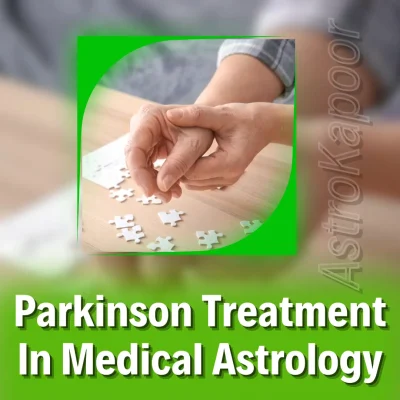₹11,000.00 ₹6,000.00

Parkinson’s disease is a progressive disorder of the nervous system of the body. In Ayurveda, Parkinson’s disease is known as “Kampavita”. This serious neurological disease affects 1% of population over age of 65 and is the fourth most common degenerative disorder found in elderly people. Parkinson’s disease develops as a mild tremor in the hands which is barely noticeable. In the early development of Parkinson’s disease, the face may be with any expression and your arm may not swing while walking. Because this condition of nerve disorder mostly occurs in the industrialized countries, there is speculation that it also occurs due to environmental toxins.
There are various signs and symptoms helpful for proper diagnosis of this disease but the most common and recognizable symptom is “Pill Rolling Tremor”. In this, condition the thumb and the finger uncontrollably resembling rolling the pill between the fingers. Tremors are mostly found in the hands, fingers, arms and legs and the patient may be unable to move fingers for a fraction of a second. This condition is called as micrographic, can even make daily small activities of the person difficult such as buttoning a shirt. · Another grave symptom of Parkinson’s diseases is “rigidity”, in which movement becomes slow and very difficult. There is difficulty in moving the arms and making coordination with the movement. This causes extreme frustration in the patient. The voice becomes less audible and face shows no expression. · Impaired posture and balance is also one of the main symptoms of Parkinson’s disease. Your posture may become stoop and there can be some balance problems. · Writing changes are seen in the person suffering from Parkinson’s disease. It becomes very difficult to write and writing may appear small.
According to Ayurveda, aging is a natural process and as we age, apana vayu accumulates and may become aggravated. As we have seen that elderly people suffer due to constipation, the reason described above. When there is a combination of these two with the vata, the stage is set for vata to overflow into the circulation. This overflow causes the vyana vayu disturbed within the rasa dhatu. Dryness of the mucous membrane is the sign of an excess of vata in the circulation. Vata may relocate to any dhatu that are weak and if there is a pre weakness in the tissue of the brain, this becomes a site of relocation, and thus a condition of Vata in the majhja dhatu resides damaging the brain and the tissues of the brain. “According to Ayurveda, Parkinson’s Disease develops due to the accumulation of Vata Dosha in the nerves in the brain” Aggravated Vata Dosha can dry up the nerve with the adverse effect.
Ayurvedic treatment for this condition mostly centers around the Vata disturbances. Apana Vayu disturbance may be treated by the use of laxatives such as psyllium, flaxseed or the traditional formula. Vyana Vayu is treated by demulcents such as slippery elm or licorice and prana vayu may be treated by ashwagandha. These general Ayurvedic remedies are prescribed for stronger dhatus in the body. For a complete medication, proper guidance and Ayurvedic remedies from an expert should be taken for prolonged effect and cure.
In astrology, planets have a role in the onset of disease and certain health condition but it is not that all planets bring harm to the person. The cause and intensity of disease can be determined by the placement of planets in the horoscope. An afflicted planet in the benefic house and ill placement of planets in the ascendants can cause certain disease. 6thhouse and 8thhouse are considered for studying the onset of any medical condition. If you want prevention before cure for the treatment of any medical condition before, you should consult a proper medical astrologer. If you looking for a Medical Astrologer in India, USA, and UK then you may contact Medical Astrologer Prashant Kapoor for complete analysis of medical conditions.